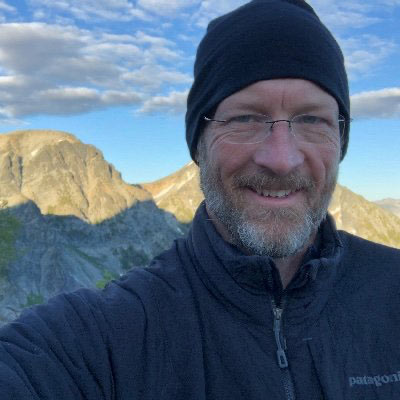LSTC Learning Communities
What are Learning Communities?
The LSTC Learning Communities is a series of theological education programs, hosted in the spring and fall of each year, that were developed to enhance lay theological education, enrich parish learning programs, and build a stronger relationship between the seminary and its constituent congregations.
Launched in 2021-22, the program was created and steered by a group of LSTC volunteers supported by LSTC faculty.
Join the Learning Communities Series, Spring 2024
Liturgy and the Natural World

We invite you to join us for an inspiring 4-part series, sponsored by LSTC Learning Communities, that explores the topic of nature and liturgy.
Dr. Stewart will lead this course for 4 Sundays, beginning April 7 from 6:00 p.m.-7:30 p.m. CST. Or you can join Wednesdays beginning April 10 from 7:00 p.m. – 8:30 p.m. CST.
Rev. Dr. Benjamin M. Stewart serves as Distinguished Affiliate Faculty at the Lutheran School of Theology at Chicago and as Pastor to Emmanuel Lutheran Church, Two Harbors, Minnesota. A recent migrant to Duluth, Minnesota, Ben is a member of the North American Academy of Liturgy and contributes to its Ecology and Liturgy Seminar. He is author of A Watered Garden: Christian Worship and Earth’s Ecology (2011).
Session Summary:
According to the Bible, the universe is like a cosmic choir where stars sing for joy, trees clap their hands, and waters roar hymns of praise. Humans – among the youngest of earth’s species – are sometimes like latecomers to choir practice, learning from other creatures how to “join their unending hymn.” In this crucial ecological moment, we take a journey to four destinations to help us reimagine our communal liturgies and our daily rituals for the life of the world: the whole cosmos; the cycle of night and day; the sacraments; and our bodies themselves as sacred ground.
We encourage all interested members of our community to join us!
Session 1: Trees Clap their Hands, Stars Sing for Joy
Sunday, April 7
Wednesday, April 10
How can humans find our appropriate place in the cosmic choir?
Session 2: Each Day is a Gift: Ancient and Contemporary Rituals for Sunrise, Sunset, and Night
Sunday, April 14
Wednesday, April 17
Did you know that the oldest Christian prayer outside the Bible is still sung as day turns to night in the Holden Evening Prayer?
Session 3: A Sacramental World: Baptism and Communion
Sunday, April 21
Wednesday, April 24
How can baptism and communion lead us deeper into love for the earth?
Session 4: Earth to Earth: Theology and Spirituality of Green Funeral Practices
Sunday, April 28
Wednesday, May 1
What is the green burial movement, and how is it deepening Christian faith and practice related to death — and the life of the world to come?
How can I support LSTC Learning Communities?
As we continue the development of Learning Communities, your support is essential to reach the full potential of the program.
Over the next two years we would like the Learning Communities to become fully self-funding and more significantly, potentially contributing to a scholarship fund for future seminarians and LSTC students. To realize this vision, we humbly request that you become a subscriber to LSTC Learning Communities by making a 3 year $100/year contribution. You can make your donation here.
To view instructions for mailing a check or other ways to donate, visit this page.
For more information on Learning Communities at LSTC, please visit our facebook page here. You can see the event on facebook here.